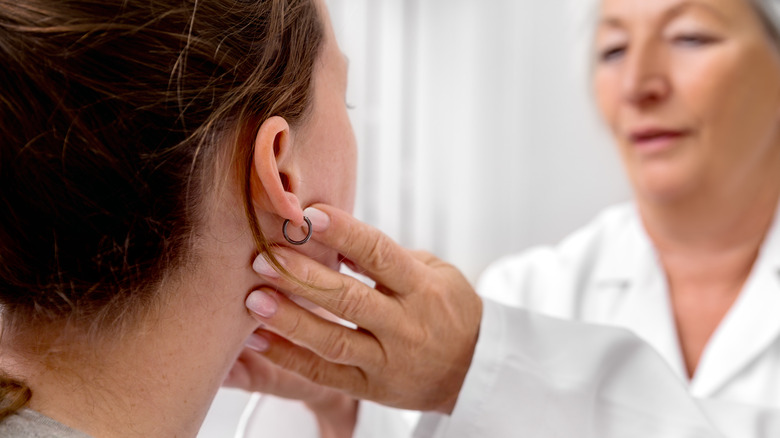What Causes Mono?
Mononucleosis, or mono, is a viral infection characterized by fever, fatigue, and swollen lymph nodes. Also known as "the kissing disease," mono is spread through the transfer of saliva, which often occurs during certain activities, like kissing, sharing cups or utensils, or other forms of close contact (via Verywell Health). Mono is typically caused by the Epstein-Barr virus (EBV), which is a member of the herpes virus family.
Mono is not the same as the herpes simplex virus, which is what causes oral and genital herpes. Although EBV can be sexually transmitted, it's usually spread through saliva (per Cleveland Clinic). As it turns out, EBV is quite common and affects nearly 90% of Americans at some point before the age of 35. While most people contract EBV during early childhood and adolescence, people in their teens and early 20s are most likely to get mono and experience symptoms, whereas younger children are typically asymptomatic.
Mono is easily treatable
According to Healthline, EBV causes mono by shedding the virus in your throat. Since the virus is contagious, it can easily be spread to others. But you won't know if you've been infected right away. That's because the incubation period for mono can last anywhere between four to six weeks. Once you develop symptoms, they should start to dissipate after one or two weeks but can sometimes last as long as two months.
In addition to fatigue, fever, and swollen lymph nodes, mono can cause headaches, muscle weakness, night sweats, rash, and swollen tonsils. In rare cases, mono can lead to swelling in the spleen or liver. However, it's unlikely that this will be life-threatening. Fortunately, symptoms of mono can be treated easily at home with plenty of rest, a lot of fluids, warm soup, over-the-counter pain medications, and immune-boosting foods, like apples, salmon, and leafy green vegetables. Gargling with salt water also helps soothe a sore throat.


